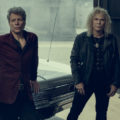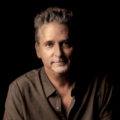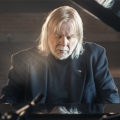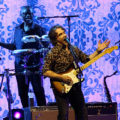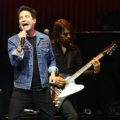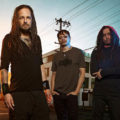Rock and Roll Hall of Famer Alan Clark chats Dire Straits Legacy supergroup with sights on St. Charles
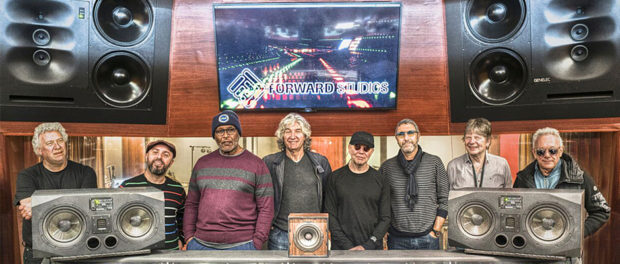 Photo provided by Dire Straits Legacy
Photo provided by Dire Straits Legacy
Never-ending airplay kept the music of Dire Straits alive long after its official break-up in 1995, but when the British rockers finally got inducted into the Rock and Roll Hall of Fame’s 2018 class, attention and interest surged up another step. Although that special occasion wasn’t enough to get everyone on the same page for a full-fledged reunion, it came in rapid succession of several members forming the Dire Straits Legacy supergroup, who are gearing up to revisit the band’s massive platter of hits (and perhaps a few tunes from the entirely new album “3 Chord Trick”) throughout a world tour that includes a select handful of dates thus far announced for America.
When DSL visits the Arcada Theatre in St. Charles on Tuesday, October 2, expect to see Alan Clark (piano/keyboards), Danny Cummings (percussion), Mel Collins (saxophone) and Phil Palmer (guitar/musical director), alongside drummer Steve Ferrone (Tom Petty & The Heartbreakers) and bassist/producer Trevor Horn (The Buggles, Yes), plus Italian musicians Marco Caviglia (vocals/guitar) and Primiano DiBiase (keyboards). Scroll on for Clark’s thoughts on his entire “Walk Of Life” with the Grammy-winning “Sultans Of Swing,” including making lots of “Money For Nothing” from MTV, in a pre-show chat with Chicago Concert Reviews.
 First off, a huge congrats on your induction into the Rock and Roll Hall of Fame. It’s much deserved and a bit overdue. What do you think took so long?
First off, a huge congrats on your induction into the Rock and Roll Hall of Fame. It’s much deserved and a bit overdue. What do you think took so long?
Clark: Thank you. I don’t know why it took so long. It could be partly down to the HOF rules, which say there has to have been at least 20 years gone by before you can be nominated. But I guess it was inevitable, really.
Even though the event wasn’t able to get everyone back together [front man Mark Knopfler was most noticeably absent], what did it do for the group’s visibility?
Clark: Quite a lot, I imagine. It certainly raised my profile in my house. My cleaning lady of four years finally put two and two together when she saw the HOF trophy on my mantelpiece, and asked for my autograph!
When did the process begin to form Dire Straits Legacy?
Clark: It kind of tumbled together bit by bit, starting nine years ago when Marco invited John Illsley and I to do an outdoor show with him and his band, on top of a ski slope in the Dolomites in December. That led onto one or two other shows in Italy with various members of Dire Straits, then Steve Ferrone joined us when he wasn’t playing with Tom Petty, and last year Trevor Horn heard about us and joined us. We do it for the fun of it. Economically, it can be a disaster because we all live in different countries/continents. Incidentally, I just spoke to Jack and he’ll be playing with us in some of our U.S. shows. He’s a good guy and it’ll be good to catch up.
How is your show shaping up and what can everyone expect?
Clark: All of the Dire Straits well-known tunes, some of the lesser known ones, a couple from our record, “3 Chord Trick” by Legacy, and probably some other stuff we’re thinking about.
It’s been ages since Dire Straits came to Chicago [with all internet evidence pointing to the Rosemont Horizon in 1992]. Can you recall anything about your prior shows in town?
Clark: It’s a bit of a blur, but Chicago is always a blast.
 What was the most gratifying period of the band for you personally?
What was the most gratifying period of the band for you personally?
Clark: Most of it, actually, [but] perhaps less so towards the end. If I had to pick one period, it would have to be “Brothers In Arms,” both making the record for three months at AIR studios on the Caribbean island of Montserrat [where it became the first album ever recorded all digitally], and the 18-month long world tour when we were the biggest band in the world.
Can you walk us through that enormous era and the band being used with the tagline for MTV?
Clark: It all began in Phil Manzanera’s studio in Chertsey, London, where we rehearsed before going to Montserrat to record the record. That was when “Money For Nothing” came to life. Mark’s reference to MTV got me thinking. I’d seen the MTV ads in the early ‘80s that used “I want my MTV,” [but] they’d stopped using that phrase by then [1984]. I started playing around with it, and what I came up with became the intro section that is on record. Interestingly, Hal Lindes has cassette recordings of those rehearsals, and the very early versions of “Money For Nothing” sounded more like The Rolling Stones. The famous guitar riff we all know and love had yet to be invented. There was a huge amount of serendipity at play at that time. We were one of the very first big bands on CD [the first million seller for the entire format], we made one of the first digitally-animated videos, and MTV were very happy to make the most of their mention.
Does Dire Straits Legacy have plans for reinterpretations of what’s already been recorded?
Clark: We do reinterpret Dire Straits songs, largely because I couldn’t bear to play them exactly as we did back then, but also because, like everything in life, they need to evolve. I recall a rehearsal when one of our “roadies,” who was also a keyboard player and a big Dire Straits fan, pointed out that I’d played “Tunnel Of Love” differently to what was on the record. My response was, “Hey, if I f***king play it, it’s f***ing right!”
But we have no intention of re-recording any Dire Straits music. What would be the point? That’s why we’ve made a record of our own material, “3 Chord Trick” by Legacy. It occurred to Phil Palmer and I that we should take advantage of the illustrious band we were in and make our own music. So we did and it’s good!
Dire Straits Legacy performs at the Arcada Theatre on Oct. 2. For additional details, visit DSLegacy.com and ArcadaLive.com.


